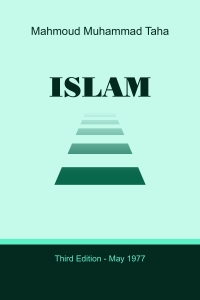The Prescribed Prayer
The Qur’anic command for prayer is expressed as follows: “Recite, [O Muhammad], what has been revealed to you of the Book and establish prayer. Indeed, prayer prohibits immorality and wrongdoing, and the remembrance of Allah is greater. And Allah knows that which you do.”
(29: 45)
The “remembrance of Allah” refers to the Qur’an. As previously stated, prayer is a means to the unlocking of the Qur’an’s meanings, hence the phrase: “and the remembrance of Allah is greater.”
All knowledge is encapsulated in the concluding words of this verse: “And Allah knows that which you do.” This points to the perfection of Allah’s management of all things, and the realization of this truth completes Islam.
Allah also says, addressing the believers: “So remember Me; I will remember you. And be grateful to Me and do not deny Me. O you who have believed, seek help through patience and prayer. Indeed, Allah is with the patient.” (2: 152-153)
The call to seek help through patience and prayer is a directive to seek assistance in attaining contentment with Allah’s Will, as previously explained in the verse: “So be patient over what they say and exalt [Allah] with praise of your Lord before the rising of the sun and before its setting, and during periods of the night exalt [Him] and at the ends of the day, that you may be satisfied.” (20: 130)
Further, Allah says: “Indeed, prayer has been decreed upon the Believers with a decree of specified times.” (4: 103)
The term “specified times” here refers to the obligation of prayer at designated times for believers. However, when believers elevate themselves through prayer, worship, righteous deeds, and the Qur’an from the rank of faith (iman) to the rank of excellence (ihsan), where they see Allah, they then surpass the status of mere believers, as they become Muslims.
At this point, they are required to emulate Allah, rather than Muhammad, as the Prophet said: “Adopt the attributes of Allah; indeed, my Lord is upon a straight path.”
In this advanced state, the phrase “a decree of specified times” takes on a new meaning, indicating that prayer is obligatory only until a certain point is reached.
It should be noted that the end of prayer does not apply as a general rule but rather at an individual level, as it pertains to a specific spiritual station, not a universal one.
Someone might ask: "Why didn’t prayer end with Muhammad?" The answer is that Muhammad is not an imitator; he is the original. While he achieves individuality through prayer, as we are required to achieve ours through our own unique paths, guided by truth and sincerity.
The Qur’an points to the Prophet’s realization of his individuality in the verse: “And during the night, pray with it as additional worship for you; it is expected that your Lord will resurrect you to a praised station.” (17: 79)
This “praised station” refers to the station he attained on the night of the Ascension (Mi’raj), where he reached the Sidrat al-Muntaha (the Lote Tree of the Utmost Boundary). Allah described him in this station as: “The sight of the Prophet did not swerve, nor did it transgress.” (53: 17)
“The sight did not swerve” indicates that his thoughts did not retreat to the past. “Nor did it transgress” indicates that his attention did not extend to the future. Instead, he was fully immersed in the present moment, witnessing and beholding. He became a unity of self in a unity of space and time.
In this exalted state, prayer was made obligatory for him. Upon returning to his human nature, prayer became a daily ascension (Mi’raj) for him and his community towards that lofty station that he attained before Allah.
Since this station represents the realization of individuality - or the unity of the human self - it becomes a goal for every Muslim to strive toward. In the later stages of the journey, originality and liberation from imitation become essential and unavoidable.

